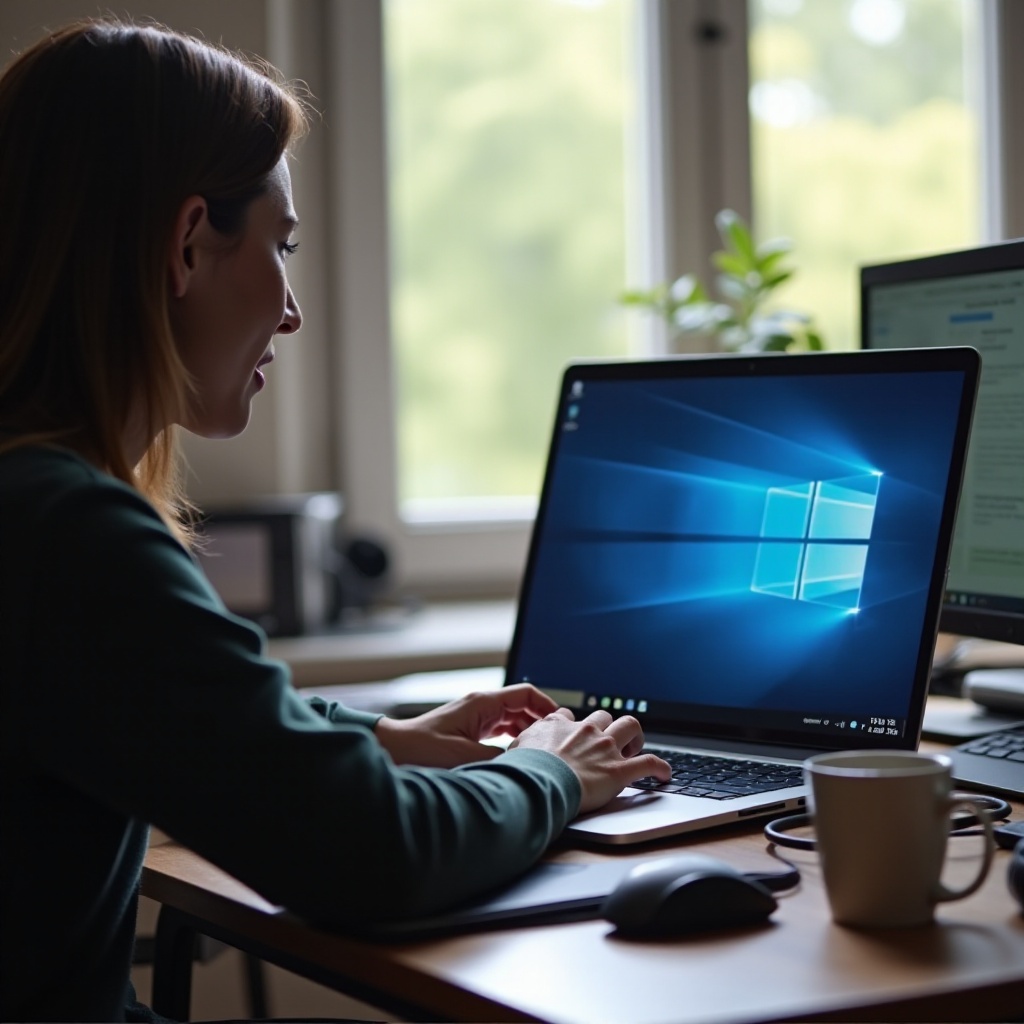Introduction
Facing the frustration of a laptop that randomly restarts can be incredibly disruptive, especially if you're in the middle of important work or enjoying your leisure time. This issue can arise from various factors, including hardware malfunctions, overheating, software conflicts, or driver issues. Understanding the root cause and implementing effective solutions is essential to prevent further disruptions and potential data loss.
In this guide, we will walk you through common causes, how to diagnose the problem, and provide actionable steps to fix and prevent random restarts. Let's get started with recognizing the common culprits behind this annoying issue.

Common Causes of Random Restarts
Several issues could be at play when your laptop restarts unexpectedly. Here are the most common causes:
OverheatingOverheating is one of the primary reasons for random restarts. When your laptop overheats, it can automatically shut down to prevent damage. Check if your laptop feels unusually warm.
Software and Driver IssuesSoftware conflicts or outdated drivers can also cause your laptop to restart randomly. New software installations or updates might be incompatible with your existing setup.
Hardware MalfunctionsFaulty hardware components like RAM, motherboard, or power supply can lead to random restarts. Physical damage or wear and tear over time could be the culprit.
Understanding these causes helps us proceed with proper diagnostics to identify what's plaguing your device.

Diagnosing the Problem
Before jumping into fixes, it's crucial to correctly diagnose the problem causing the random restarts. Here are some methods to help you identify the issue:
Checking Event Viewer LogsThe Event Viewer in Windows can provide detailed logs of what was happening at the time of the restart. Look for entries marked with errors or warnings around the time your laptop restarted.
Running Hardware DiagnosticsMany laptops come with built-in hardware diagnostic tools. Running these tests can help you identify failing components. Look for options like 'Diagnostics' or 'Hardware Check' in your laptop's BIOS menu.
Safe Mode and Clean BootBoot your laptop into Safe Mode to see if the issue persists. If your laptop doesn't restart in Safe Mode, a software conflict might be the cause. Performing a clean boot can also help you diagnose software-related issues by starting your laptop with the minimal number of drivers and programs.
Proper diagnostics will point you in the right direction for the applicable solutions.

Fixing Overheating Problems
If you identify overheating as the cause of your laptop's random restarts, here are some steps to resolve it:
Cleaning the Laptop's VentsDust and debris can block the airflow in your laptop. Use compressed air to clean out the vents and fans regularly.
Replacing Thermal PasteThe thermal paste helps in efficient heat transfer from the CPU to the cooling system. Over time, it can dry out and become less effective. Reapply thermal paste to ensure optimal cooling.
Using a Cooling PadAn external cooling pad can help keep your laptop cool, providing additional airflow around your device.
Taking these preventive steps can greatly reduce the risk of overheating-related restarts.
Software and Driver Solutions
Once hardware issues are ruled out, it's time to tackle software and driver-related problems:
Updating or Rolling Back DriversEnsure all your drivers are up to date. If you started experiencing restarts after a driver update, consider rolling back to the previous version.
Uninstalling Problematic SoftwareRecent software installations might conflict with your system. Uninstall any recently added programs to check if the restarts stop.
Running System File Checker (SFC)The SFC tool scans and repairs corrupted system files. Run it by typing 'sfc /scannow' in the command prompt to fix corrupted files that might cause random restarts.
Resolving software conflicts and keeping drivers up to date can stabilize the performance of your laptop.
Hardware Repair and Replacement
If software solutions don't resolve the issue, you might have to address hardware problems:
Checking RAM for ErrorsFaulty RAM can cause your laptop to restart. Use Windows Memory Diagnostic or third-party tools like MemTest86 to check for memory errors.
Testing the Hard DriveBad sectors or failing hard drives can lead to random restarts. Use your laptop's built-in tools or third-party software to check the hard drive's health.
Consult a ProfessionalIf the issue persists despite your best efforts, consult a professional technician. They can diagnose and replace faulty components that may not be easily accessible.
Addressing hardware issues can ensure the longevity and reliability of your laptop.
Preventive Measures
Prevention is always better than a cure. Here are some tips to avoid future problems:
Regular Maintenance and CleaningKeep your laptop clean and dust-free by regularly cleaning the vents and fan areas.
Keeping Software Up to DateRegularly update your operating system and all drivers to avoid compatibility issues.
Safe Usage PracticesAvoid placing your laptop on soft surfaces that can block vents. Use it on hard, flat surfaces to ensure proper ventilation.
These measures can help maintain your laptop's performance and prevent unexpected restarts in the future.
Conclusion
Random laptop restarts can be a major inconvenience, but understanding the causes and following the diagnostic and troubleshooting steps outlined in this guide can help you resolve the issue. Regular maintenance, keeping your software up to date, and using your laptop in a conducive environment can prevent such problems altogether. Take these practical steps to ensure a smooth and uninterrupted experience with your laptop.
Frequently Asked Questions
Why does my laptop restart randomly only when plugged in?
When a laptop restarts only when plugged in, it could be due to a faulty power supply or battery. Ensure your power adapter is functioning correctly, or replace your battery if it's old and worn out.
How can I tell if my laptop's battery is the cause of the restarts?
If your laptop restarts when switching between battery and AC power or when the battery is low, it might indicate a battery issue. Try running your laptop on AC power without the battery to see if the problem persists.
Can a virus cause my laptop to restart randomly?
Yes, viruses or malware can cause random restarts. Run a full system antivirus scan to detect and remove any malicious software that could be disrupting your system.
